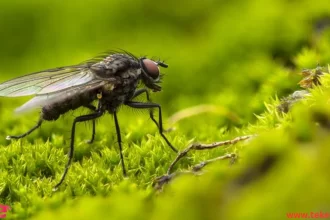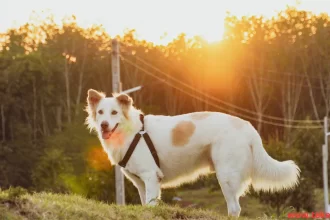There are many people who suffer from allergies, which show symptoms like sneezing and itchy eyes, especially when in contact with pets. Therefore, it is difficult for these people to have pets at home. However, fortunately, there are many breeds of dogs that are hypoallergenic and less likely to cause allergic reactions for individuals with allergies. These hypoallergenic dogs are the perfect companions for those who want to have pets in their homes without facing any health issues.
Hypoallergenic dogs are specific breeds that cause less impact on humans with allergies. These dogs shed very little hair, which helps prevent the inhalation of airborne allergens. Some examples of hypoallergenic dogs include the Poodle, Bichon Frise, Yorkshire Terrier, and others. In this report from teketrek , we will explore a wide range of hypoallergenic dog breeds.
Why Do Some Dogs Cause More Allergies Than Others?
Some dogs cause allergies for allergy sufferers due to their fur, saliva, and urine, which produce substances that cause allergens in the surrounding environment. When a person inhales these substances, it causes sneezing and eye irritation. The main reasons for dog allergies are:
- Dog saliva and its secretion are common causes of allergies, as dogs lick their fur and when the saliva dries, it releases allergens into the air.
- The dog’s urine contains proteins that can trigger allergies, and these proteins can spread into the air when the urine dries, causing allergic reactions.
- The shedding of a dog’s fur, which may contain flakes and dead skin, can affect allergy sufferers.

Best Dog Breeds for People with Allergies
While no dog breed is completely hypoallergenic, some breeds cause fewer allergic reactions. Some of the best breeds for people with allergies include:
- Yorkshire Terrier: This breed is hypoallergenic and is known for being playful, affectionate, and well-suited for home life. It requires personal care, such as regular grooming, and its coat is strong and silky, shedding very little. This breed does not spread dander around the house and is less likely to trigger allergy symptoms.
- Poodle: Poodles are one of the best hypoallergenic dog breeds, with their curly and dense coat in various colors like gray, white, brown, and black. Poodles shed very little hair, making them suitable for people with allergies. This breed is smart, energetic, and ideal for people with sensitivities.
- Bedlington Terrier: This breed is perfect for allergy sufferers because it sheds hair in minimal amounts, making it easy to care for. You can groom this breed once a week to maintain its elegant look. It is very active and has a strong hunting instinct.
- Bichon Frise: Bichon Frises are great for families with children and individuals who suffer from allergies. They are friendly, smart, and easy to train from a young age. They also have a lot of energy, so providing them with toys and activities can keep them entertained.
- American Hairless Terrier: This breed is hairless, which eliminates the shedding problem. It requires minimal care, mainly ear cleaning and protection from sunburn and cold weather. It is friendly, intelligent, curious, and great for guarding its owners. This breed is quick to bond with families.
- Afghan Hound: Afghan Hounds are another hypoallergenic breed. They shed very little and have a soft coat that requires grooming to prevent tangles. They are loyal and form strong emotional bonds with their owners. They are also ideal for individuals who live alone.
The billfish: most important information and interesting facts
How to Care for Hypoallergenic Dogs
Caring for hypoallergenic dogs is essential to reduce the spread of fur and allergens. Specific care steps include:
- Train the dog to use designated areas for relieving itself instead of inside the house.
- Provide allergy-friendly food to maintain the dog’s health and reduce allergy-related risks.
- Regular grooming and cleaning will help minimize the spread of allergens in the home.

Tips for Choosing a Hypoallergenic Dog
When choosing a hypoallergenic dog, you need to consider various factors:
- Dog Size and Coat Type: Dogs with thick fur are a good choice since they shed less.
- Adaptability: Choose breeds that adapt well to home environments and don’t require constant outdoor living.
- Care Requirements: Some hypoallergenic breeds need more frequent grooming, so consider the amount of time you can dedicate to this task.
- Energy Level: Some hypoallergenic dogs are more energetic and need regular exercise, while others may only need short walks and indoor play.
- Compatibility with Children: Some hypoallergenic dogs do well in homes with children, while others are better suited to quieter environments.
- Consulting with an Allergy Specialist: It’s essential to consult with an allergy doctor to determine what allergens may trigger your symptoms, helping you choose the best breed.
Conclusion
Hypoallergenic dogs are ideal for those who suffer from allergies caused by pet hair, urine, or dander. In this report, we’ve introduced several hypoallergenic dog breeds and discussed how to care for them. You can choose the right breed based on size, grooming needs, and your daily routine. Some breeds need daily care to prevent matting, while others can be maintained with weekly grooming. We hope this report provides helpful information for you.





